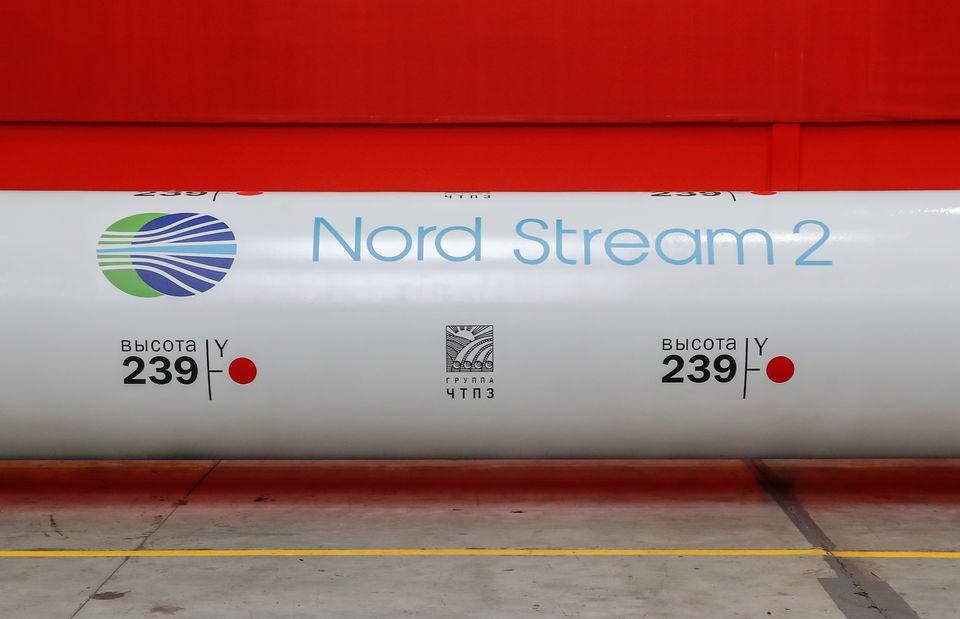On Tuesday, German Chancellor Olaf Scholz announced that Germany is suspending the certification of Nord Stream 2, Russia’s flagship gas pipeline to Europe. Germany’s decision came in retaliation to Russian President Vladimir Putin’s move to officially recognise the statehood of the Donetsk People’s Republic (DNR) and Luhansk People’s Republic (LNR), two breakaway territories in the Donbas region of eastern Ukraine.
During a joint press conference with Irish Prime Minister Micheál Martin in Berlin, Scholz told reporters that Germany considered Russia’s recognition of Donetsk and Luhansk to be “unilateral, unjustified, and incomprehensible,” and urged the international community to take unified action against Russia. Scholz confirmed that his administration had enacted measures that halt the certification of Nord Stream 2 in order to deter Russia’s military aggression and prevent a “disaster.” Scholz noted that his administration is currently re-examining the security of Germany’s energy supplies.
Separately, German Minister for Foreign Affairs Annalena Baerbock led a G7 call with counterparts from Canada, France, Italy, Japan, the United States (US), Britain, and the European Union (EU). The G7 bloc jointly expressed their condemnation of Russia’s activities, adding that the countries are “stepping-up restrictive measures” against Moscow. The measures include financial and economic sanctions targeting various individuals and sectors in Russia that the G7 believes will cause “severe and unprecedented” damage to Russia’s economy.

Both the US and Ukraine welcomed Germany’s move to halt certification, calling it a decisive action in sending a strong signal to Russia. Ukrainian Minister of Foreign Affairs Dmytro Kuleba said it was the “morally, politically, and practically” right step to take in face of Russia’s aggressive military activity. Poland’s Deputy Prime Minister, Jarosław Kaczyński, called for more aggressive action against Russia, but acknowledged that the current measures are “better than nothing.”
Kremlin spokesperson Dmitry Peskov said Russia regrets Germany’s move, adding that the Nord Stream 2 is purely an economic venture aimed at stabilising European energy prices. The Deputy Chair of Russia’s Security Council, Dmitry Medvedev, warned that Germany’s decision may backfire and leave EU citizens having to pay exorbitant energy prices.
German Chancellor Olaf Scholz has issued an order to halt the process of certifying the Nord Stream 2 gas pipeline. Well. Welcome to the brave new world where Europeans are very soon going to pay €2.000 for 1.000 cubic meters of natural gas!
— Dmitry Medvedev (@MedvedevRussiaE) February 22, 2022
On Tuesday, European gas prices increased by 9.8%, burdening European consumers who are already dealing with record energy prices along with a general increase in the cost of living due to the COVID-19 pandemic. Last December, gas prices in Europe soared past $1,700 per thousand cubic meters as Russia reduced supplies along the Yamal route. In the same month, Putin confirmed that the Nord Stream 2 pipeline is ready for operations, adding that its implementation will have an immediate impact on energy prices in Europe.
Scholz’s decision to halt certification of Nord Stream 2 marks a major departure on Germany’s position on the pipeline, which has until now remained fairly neutral. Scholz has faced criticism even within his own ruling coalition for not shutting down the pipeline. Though Russia has warned that the EU will bear the brunt of Germany’s change in position, it could equally put pressure on Russia, which has paid for half of the cost of the $11 billion gas pipeline.

